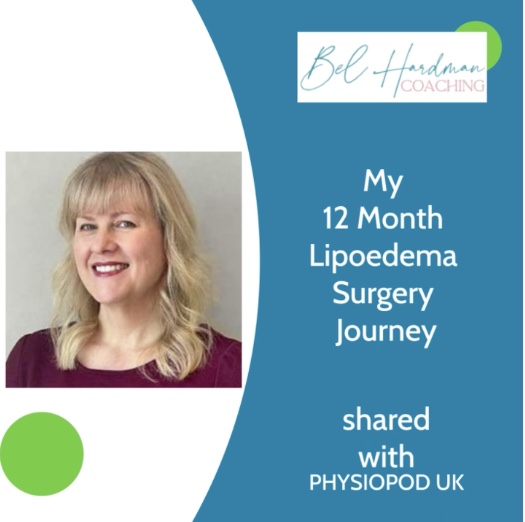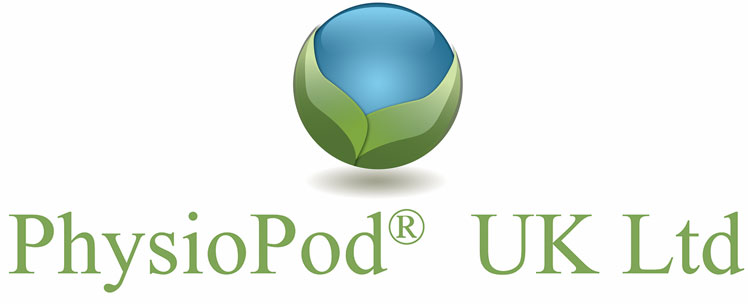Patient Review – NICE Report – Liposuction for Chronic Lipoedema

Bel Hardman, Director at Integral Workplace Wellness Ltd has privately funded 2 of 4 surgeries
required for stage 2/type 4 Lipoedema
My first thought when I read the title, 'Liposuction for Chronic Lipoedema' was to focus on the term chronic, chronic means ‘an illness persisting for a long time or constantly reoccurring’. On the basis of that meaning, all lipoedema is considered chronic. However, there is no real specification from NICE if this treatment will be considered for all or just those whose quality of life and mobility is impacted.
Most of us in the lipoedema community have already read this report and were obviously disappointed by the outcome, however this is not unexpected and it raised fair points of concern as one would expect. It states that the evidence on the safety and efficacy of liposuction for chronic lipoedema is inadequate. The issue is the lack of research and whilst there is no research from the UK, NICE did consider a number of small studies from Europe and are looking towards the completion of a German research study that they wish review once complete. I believe that this research study is being conducted by Dr Ghods team in Berlin, I’m unsure when this research is due to be completed, however NICE state their next review in this matter will not be until March 2025.
The report details the requirements of any such research, however, with only a handful of surgeons in the UK skilled to offer liposuction for lipoedema I feel that other countries such as Germany are likely better positioned to conduct this research based on the number of surgeons and patients available to participate in said research.
The report then states: ‘this procedure should only be used in the context of research’. They further go on to state what this means: ‘clinicians should only carry out these procedures in the context of formal research studies. A research ethics committee needs to have approved their use. We make this recommendation if procedure is still considered to be experimental, or because of unresolved uncertainties.’
I question if the statement: ‘this procedure should only be used in the context of research’ is the reason we have seen all but one UK surgeon withdraw liposuction for lipoedema surgery. My research has shown that the majority of UK surgeons offering liposuction for lipoedema are plastic surgeons and their governing body has stopped them performing these surgeries which has led to issues with their insurance. There is just one surgeon (Dr Gupta in Hertfordshire) who I believe is an aesthetic surgeon and is under a different governing body therefore he is able to still proceed with liposuction for lipoedema surgery. This is a huge blow to ladies in the UK who cannot travel outside the UK due to personal or health reasons for what we, those of us who have had surgery, would call a life-altering procedure. This situation is currently under consultation between the surgeons and their governing body as I type.
I do completely agree with the statements that there is a lack of evidence on the safety and efficacy. This simply means we do not have enough documented research for NICE to confidently state Liposuction for Chronic Lipoedema is safe and provides the necessary relief to recommend it be part of the NHS treatment for Lipoedema. As a woman with Stage 2 / type 4 lipoedema who has undergone 2 of the 4 surgeries I need, I feel I speak for many women who have chosen to have surgery. We have done much research, months or years, spoken to others who have walked this path before us and have worked hard to put our physical health in a position to assist us with both the surgery and recovery. We know there are risks, every surgery has risks, but when you are living with a debilitating, painful and progressive disease such as lipoedema, we’ve weighed up those risks against the life we live with lipoedema now and the future life it will deal us if we do not treat it with surgery.
I wish to digress slightly and make mention of the Private Facebook group Global Lipoedema Awareness – Surgeries / Doctors set up by Maria Kokkinou Boege which is a global community of 17,000 Lipoedema women who are seeking surgery for lipoedema. I have found this resource invaluable and I know the honest experiences on this group help many of us make informed decisions on our surgeries and appropriate surgeons.
Back to the report, Nice encourages the creation of a register for all patients having liposuction for lipoedema to support research. My question is, who will take up this responsibility? I do hope one of the charities may be able to undertake this task and NICE do list guideline for research so these could be utilised to document patient information. This is a huge undertaking and a long-term project.
I was a little disappointed by a statement in section 2.0, where it says ‘the aetiology of lipoedema is unknown but potentially it's about hormonal changes’ I feel there is more research into the causes than this, in particular recent ground-breaking research from Dr Shayan in Melbourne Australia which points to overactive gene pathways that are found in some cancers*. On a positive note in section 2.0 they did recognise the physical effects on size, pain and also the mental effects associated with this condition on women.
In section 2.2 they state that the fat associated with lipoedema is ‘usually resistant to diet and exercise’. This is a very disappointing statement as I am not aware of any research or woman who has successfully eliminated any lipoedema fat with diet & exercise and the above research suggests this is not possible as it’s driven by separate stems cells to obesity fat.
In addition, they state ‘in severe cases, surgery’ is a treatment. The term severe is indicative of the lack of proactive approach we see in the NHS which I again find very disappointing. These are a few examples that I feel show the gravity and complexity of living with this condition has not been fully grasped by the committee.
They do also list a number of conservative therapies such as: healthy lifestyle changes, compression and manual lymphatic drainage. I feel the outlook for liposuction surgery to be offered on the NHS for lipoedema is years away. I would like to see a push for NICE to consider the conservative therapies be offered to all sufferers of lipoedema in addition to compression garments already available. I’d suggest dietician / nutritional therapy consultations, regular MLD, deep oscillation therapy, exercise / gym vouchers and mental health support. I feel we would have more success in seeking greater conservative treatments whilst we await the necessary research into liposuction surgery for lipoedema.

